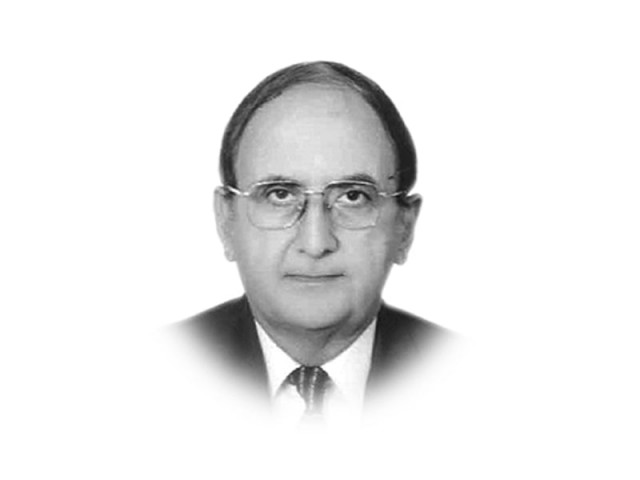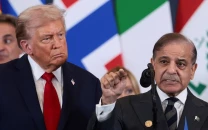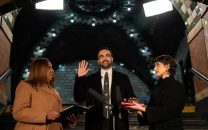The decisive confrontation
The PML-N and the Sharif family are taking the political challenge from the PTI very seriously

The writer is an independent political and defence analyst. He is also the author of several books, monographs and articles on Pakistan and South Asian affairs
The government’s use of force to quell the planned agitation is based on the assumption is that the PTI activists are easy going and fun-loving people who treat political protest as a “party-like” activity. The government strategists think that if the PTI activists are subjected to violence and arrest they will be discouraged from coming out for political protest. Therefore, the federal and Punjab governments displayed the coercive apparatus of the state in the form of baton-charge, use of tear gas and arrests to dissuade the activists. The two governments are expected to stop the PTI activists from leaving their home towns by arresting the party activists and blocking the main roads leading to Islamabad. It seems that the Punjab government is immobilising the whole province so that Imran Khan cannot blockade Islamabad.

The PML-N and the Sharif family are taking the political challenge from the PTI very seriously because the latter wants to dislodge the former from its dominant position in the Punjab which is the PML-N’s exclusive political preserve and its primary source of support. The PML-N has created a patrimonial and patronage based political order in the Punjab. It has brought the bureaucracy and the police under its firm control. The important bureaucratic and police assignments in the province are assigned purely on loyalty to the House of Sharifs. State resources and patronage are used in a highly partisan manner and no major business group can afford to alienate them.
The PML-N governments at the federal level and in the Punjab have created a class of beneficiaries comprising government contractors and suppliers, real estate dealers, facilitators for providing services to people and local influential by letting them make money from government tasks and projects or giving them a free hand for making profit in private business or commercial activity or charging money from people for facilitation of their tasks. These “beneficiaries” have some obligations toward the government which include making financial resources available for the activities of the ruling party; building good will for the government at the common person level; and securing votes for its candidates.
The political domination of the Punjab is the key to the PML-N strategy to rule Pakistan. This province has 148 seats out of 272 directly elected general seats in the National Assembly. If the PML-N wins 100 seats from the Punjab, it can easily form the government at the federal level with the support of independent members and smaller political parties.
The PML-N takes the PTI challenge seriously because it threatens its monopoly in the Punjab. Had the PTI limited itself to Khyber-Pakhtunkhwa, the PML-N would not have been so perturbed by the rising political fortunes of the PTI. The PML-N can work smoothly with the PPP because it is no longer an adversary. Its electoral support is limited to interior Sindh which hardly matters in the PML-N political consideration. However, the PML-N would adopt all possible ways to neutralise PTI threat in the Punjab.
From the PTI standpoint, it cannot rule Pakistan without undermining the PML-N Empire in the Punjab. Therefore, the political future of these two parties is at a stake in the current agitation. The PML-N has the advantage of being the ruling party. However, the excessive use of state apparatus to protect party interest can be counter-productive. It can expose the federal and the Punjab governments to sharp criticism and the political situation can drift to the point where the government cannot function without some major changes in it.
The federal government has summoned the Army for the protection of government installations in Islamabad. This has been done under Article 245 of the constitution which was invoked by the federal government during the 2014 sit-in by the PTI in Islamabad. It was not formally revoked. Now, the same article has been used to extend the scope of action by the Army. However, the Army is not expected to use brute force against the protesters on the footsteps of the police. It will maintain its autonomy by not being seen as an extension of the federal government.
In order to win over the Army in the current political crisis, the PML-N federal government offered to take action against its senior officials for getting the news item published in a newspaper regarding the national security meeting. However, this offer has not helped to rehabilitate the Army’s trust in the federal government.
The use of excessive force in the name of writ of the state is going to further isolate the government. The opposition parties that are not supporting Imran Khan will reject the use of force against the protesters. This will reduce his options for holding on to power.
Being in power, the PML-N government should seek the solution of the current crisis by adopting administrative restraint and dialogue for finding a midway solution. However, such a solution will not be possible without agreeing to an independent inquiry of the Panama Leaks charges against the Prime Minister’s family. Whether he can stay in office during the period of investigation is another sticky point. If the PTI brings a large number of its activists to Islamabad or there are widespread clashes between the PTI workers and the police as they move out of their home-towns for going to Islamabad, the situation can get out of control. The Army may have to mediate the conflict by asking Nawaz Sharif to resign in favour of another prime minister from the PML-N, excluding the Sharif family; the PTI will have to stop its protest on the presumption that the Panama Leaks issue will be investigated. However, if the PTI cannot bring out people, it will be a setback for the PTI but the problem will not be resolved. There is a judicial challenge to Nawaz Sharif’s membership of the National Assembly in the Supreme Court. It also focuses on the Panama Leaks. The current crisis is not expected to end soon. Nawaz Sharif faces more political uncertainties than Imran Khan.
Published in The Express Tribune, October 29th, 2016.
Like Opinion & Editorial on Facebook, follow @ETOpEd on Twitter to receive all updates on all our daily pieces.














COMMENTS
Comments are moderated and generally will be posted if they are on-topic and not abusive.
For more information, please see our Comments FAQ